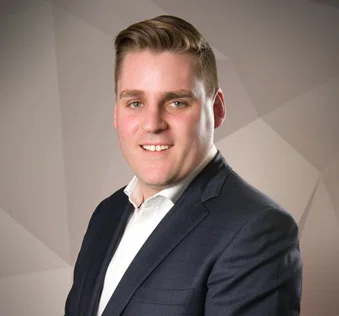
Close
result


Profile
James Copsey
Partner, Corporate Affairs, KPMG Australia
James Copsey,
Amelie Hotlby
4 min read


Bring government solutions, not problems
Bring government solutions, not problems
Amelie Holtby spoke to James Copsey about the importance of relationships when working with government.
In an environment where there are multiple spinning plates, conflicting agendas, and tidal waves of information, James Copsey, Partner, Corporate Affairs at KPMG Australia, recommends keeping your attention firmly focused on relationships, and thinking before speaking.
James joined KPMG after a decade of alternating between private-sector and public-sector jobs of increasing seniority, but with a consistent theme of communications and advice. While he was Director of Government and Regulatory Affairs at KPMG, the already hectic arena of government relations came under new pressure with the emergence of the COVID pandemic.
‘The political sphere is always full of tensions ‒ between getting elected and governing, between retaining the public favour and making tough decisions,’ he said. ‘The wheels can be spinning at a frantic pace without a lot of meaningful activity occurring. That’s why it is important to be clear about your own motive and purpose, and use that to create priority.’
He also emphasised the need to understand and respect the situation that stakeholders are dealing with. ‘Take time before you communicate (send that email, make that phone call) to understand the environment that they’re operating in at that point in time. Can you be a little more strategic, careful?
Ask yourself – is now a good time? Do I want to push for that meeting today?
Not only does this approach mean that you have a greater chance of success during that particular interaction, but it also helps to build your reputation and relationship over time.
In addition, James said, if you are trying to build your relationship with government, you need to bring them solutions and not just problems. ‘I know from my time working in government that everyone there is time-poor. They have access to lots of information but they also have stakeholders coming to them all the time with problems that need fixing. If you want to engage with government, take them something that they can work with: something that’s practical and realistic, and isn’t just going to drain them.’
During the COVID pandemic, governments everywhere were overwhelmed by noise, complaints, and requests from stakeholders in all sectors, as people wanted to influence the response, offer their services, and sometimes, frankly, take advantage of the situation. KPMG’s starting point in Australia was respect for the role of government in making the decisions. ‘When we did want to engage, we tried to reinforce it with whatever data we could, and we tried to be specific and tangible about our recommendations,’ said James. ‘Over time, more and more data came into play and we were able to prove our point. But this could only happen because we had already spent time and effort in building relationships, so they knew what we did as an organisation and trusted us.’
This was also important on a personal level, especially during lockdown. ‘At the end of the day, we’re individuals engaging with other individuals. They were in lockdown too: they were fatigued, they had information coming at them from all directions, they did not necessarily know what to trust. I found that just before a meeting, taking the time to check how people were feeling was an important way to establish a personal connection that made it easier to work together.’

Basically, if I’m sitting at my desk from nine to five, then I’m not really doing my job.
Unsurprisingly, James has a large network, which he cultivates intentionally. ‘When I look at my diary for the week ahead, I colour-code what I’m doing – internal meetings, external meetings, admin etc. And I try to ensure that there is a sizeable chunk of time for external relationship-building. If there isn’t enough there, then I will make changes. Basically, if I’m sitting at my desk from nine to five, then I’m not really doing my job.
‘Cultivating a network does take energy, but you can be smart about it: you can schedule quick catch-ups over coffee, for example, or send a message just to keep the connection warm, with a promise to connect in more detail when you can.’
He stressed that being responsive is not about being at everyone else’s beck and call, but about recognising that they have made the effort to reach out to you. And it is not only possible but respectful to be honest about your own time constraints and set expectations about just how much you can do for them. However, as a chief of staff, building relationships is so important that ‘you’ve really got to make a commitment that it’s a priority for you.’
Author Bio
James Copsey
Lead Partner of Government & Regulatory Affairs for KPMG Australia
As the Lead Partner of Government & Regulatory Affairs for KPMG Australia, James has responsibility for identifying and influencing emerging public policy shifts, and regulatory risks and opportunities that have the potential to impact the Firm's reputation or operations. Previously James was the Head of Government for Australia Post, served as a Senior Press Secretary to the 47th Premier of Victoria and also the Victorian Attorney-General, Minister for Finance and Minister for Industrial Relations. James has also worked for a member of the Australian House of Representatives.
Author Bio
Amelie Holtby
Amelie is a university student reading international economics and finance. She has a keen interest in global development and ethical investment.








